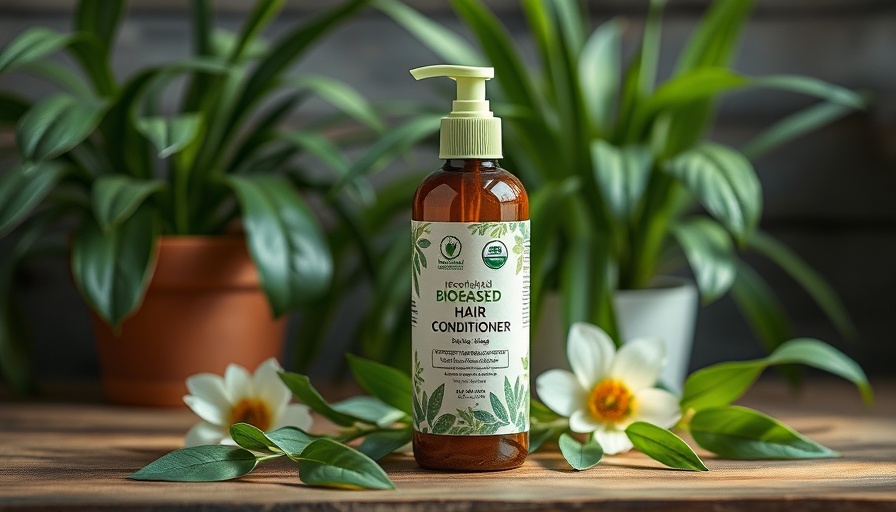
Unlocking Sustainable Beauty: The Rise of Lignin-Based Hair Conditioners
In a world increasingly focused on sustainability, researchers at Stockholm University have emerged as pioneers in the beauty industry by developing a fully biobased hair conditioner utilizing lignin gel emulsions. This innovative product not only promises to revolutionize the personal care sector but also addresses the pressing concerns surrounding environmental stewardship in haircare formulations.
Why Lignin? The Science Behind a Better Conditioner
Traditionally, hair conditioners contain a complex mix of 20-30 ingredients often sourced from petroleum and oleochemicals. This reliance on synthetic components poses significant sustainability challenges. The groundbreaking study published in Science Advances showcases how micellar lignin gels effectively stabilize emulsions paired with natural oils, drastically reducing the dependency on synthetic surfactants—ingredients commonly criticized for their ecological footprint.
Performance Compared: A New Contender in Haircare
In a comparative analysis against conventional hair conditioners, the lignin gel-based formulation demonstrated equivalent emulsion stability, viscosity, and conditioning efficacy. A notable ingredient, coconut oil, constituted 6% of the formulation, which was found to reduce the wet combing force of damaged hair by 13%, delivering impressive benefits for consumers seeking effective haircare products that are easier on the environment.
Wider Implications for Consumer Products
Ievgen Pylypchuk, a key figure in developing this lignin gel technology, emphasizes its broad application potential beyond personal care. The unique properties of lignin allow it to stabilize emulsions and interact with biomolecules, opening doors in cosmetics, food, and biomedical applications. This versatility indicates that lignin-based solutions could soon replace conventional ingredients across multiple industries, responding to the growing demand for sustainable alternatives.
Aligning with Consumer Trends
The inclination for greener products is reflected in consumer behavior, with many individuals actively seeking out environmentally friendly haircare options. The lignin-based conditioner not only meets experimental standards but also aligns with this demographic shift towards sustainable personal care. By tapping into this market, companies can resonate with eco-conscious consumers, potentially leading to increased loyalty and engagement.
Future Trends: The Path Forward for Biobased Products
The innovative use of lignin highlights a broader trend towards biobased ingredients, indicating a shift in cosmetic and personal care preparatory processes. With research ongoing, the potential for lignin to enhance sustainability within the haircare industry could lead to pioneering novel formulations that comply with environmental regulations while catering to consumer expectations.
Conclusion: A Call for Change
As the beauty industry grapples with sustainability, the advances made with lignin gels present an exciting opportunity for innovation. For CEOs and marketing professionals, leveraging such innovative developments could not only position their brands as leaders in sustainable beauty but also address a growing consumer demand for eco-friendly solutions. Embracing sustainable alternatives like lignin-gel hair conditioners could represent a significant leap toward a greener future in personal care.
 Add Row
Add Row  Add
Add 




Write A Comment